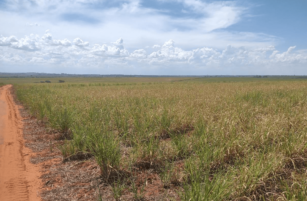


Bulk freight rates almost quadrupled during the first three quarters of 2021, thanks to both exceptionally strong demand for bulk commodities and logistical disruption at ports.

This was bad news for refineries that rely on bulk raw sugar shipments, as such high rates drastically increased their cost of production. For instance, it ended up costing Brazil’s refineries 70 USD/mt in freight costs, up from 20 USD/mt earlier in the year. This, in turn, increased the asking price of those that re-export onto the world market (toll refiners).
In recent weeks, however, the bulk freight market has seen a rapid reversal, with prices plummeting. The Baltic Dry Index has fallen by 57% from a high of 5,650 on the 7th October (2,430 today). This is because the trends that caused the rally reversed with weak demand and logistical issues appearing less prevalent.
Freight costs for raw sugar shipments have subsequently fallen, as has the cost of production. Shipments are approximately 10-15 USD/mt cheaper than they were when costs peaked. This means refinery margins are improving and the cost of refined sugar from re-export refineries has softened. This should be positive for raw demand and could lead to strength in the physical market, but prices remain well above 2020’s levels. This means refineries are still aiming to capture a higher price than they did last year.
Freight’s rally offered fundamental support to refined sugar prices, as re-export refineries should need to supply the market in 2022, so their costs must be met to ensure supply. Therefore, softening freight costs will also mean cheaper refined sugar, and could be positive for the refined market next year. However, issues with container availability remain.

Other Opinions You Might Be Interested In…
- How the Fertilizer Crisis Impacts CS Brazil’s Sugarcane Sector
- Raw Sugar Hedging: Will CS Brazil’s Mills Slow Down?















